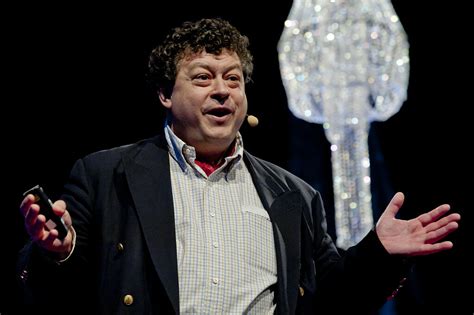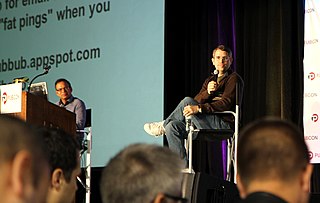Top 1200 Google Search Quotes & Sayings
Explore popular Google Search quotes.
Last updated on April 15, 2025.
I could Google image search 'the sky' and I would probably see beautiful images to knock my socks off. But I can't Google, you know, 'What does my friend look like today?' For you to be able to take a picture of yourself that you feel good enough about to share with the world - I think that's a great thing.
I remember at the time - right before we started Feministing.com - doing a Google search for the term "young feminism" and the term "young feminist," and the first thing that came up was a page from the National Organization for Women that was about 10 or 15 years old. And it just struck me as so odd that there was all of this young feminist activism going on, but that it wasn't necessarily being represented online, that the first things in a Google search to come up were really, really old. I think to a certain degree we really filled a gap, and that's why we got such a large readership.
If Google decided at any point to publish my search history, or your search history, or anyone's search history, there's a litany of things they could idea police you about, and if it was published, you would be publicly shamed. Everyone would be publicly shamed. But we trust Google, and we trust the people that run that company.
Even companies that do big business online struggle to be noticed by Google users. The Web, after all, is home to some 120 million Internet domains and tens of billions of indexed pages. But every company, big or small, can draw more Google traffic by using search-engine optimization - SEO, for short.
Google - and some of the other sites, YouTube and, you know - Google has an amazing search engine. The map product is incredible. So there's a sort of exchange when you put up with a bunch of ads. Facebook basically gives you access to your friends who, in theory, you had access to already. So sometimes I don't really understand the deal, but I guess it makes it slightly easier. So that's their contribution.
In spite of my own reservations about Bing's ability to convert Google users, I have to admit that the search engine does offer a genuine alternative to Google-style browsing, a more coherently organized selection of links, and a more advertiser-friendly environment through which to sell space and links.
On Amazon, you find retailers that want Amazon to do part of their services. Those, you don't find to the same degree on Google Shopping. On Google Shopping, you find sort of the bigger brands, those who want to have the customer relationship themselves - the data, the payment details, the search patterns.
We see Google experimenting in so many places outside of its core search and advertising business, whether that's bringing broadband Internet to the world or funding an entirely separate company to pursue solutions to disease and mortality. Amazon's one of the few other companies that thinks as big as Google does.
I think of Google as a set of overlapping things. It's a consumer platform, consumer phenomenon of which search is its fundamental activity, but there are many other things you can do than search... I think of Google as an advertising company who services the broader advertising industry in the ways that you know.
In 2002, Google began an ambitious project to digitize every book in the world. It was intended as a search project: type in a query, and Google would show you snippets. They asked university libraries for books, which they would scan for free. At Harvard we didn't permit them to take works under copyright, but other libraries gave them everything.
Competitors argue that Google rigs its search algorithms to demote listings for competing search engines. Many of the allegations of demotion come generally from sites of pretty questionable quality, such as Nextag and Foundem. Some of Google's primary competitors in 'specialized search' clearly place well in search results - Amazon and Yelp.
Google Now is one of those products that to many users doesn't seem like a product at all. It is instead the experience one has when you use the Google Search application on your Android or iPhone device (it's consistently a top free app on the iTunes charts). You probably know it as Google search, but it's far, far more than that.
I wish that Google would realize its own power in the cause of free speech. The debate has been often held about Google's role in acceding to the Chinese government's demands to censor search results. Google says that it is better to have a hampered internet than no internet at all. I believe that if the Chinese people were threatened with no Google, they might even rise up and demand free speech - free search and links - from their regime. Google lives and profits by free speech and must use its considerable power to become a better guardian of it.
I am living in the Google years, no question of that. And there are advantages to it. When you forget something, you can whip out your iPhone and go to Google. The Senior Moment has become the Google moment, and it has a much nicer, hipper, younger, more contemporary sound, doesn't it? By handling the obligations of the search mechanism, you almost prove you can keep up.... You can't retrieve you life (unless you're on Wikipedia, in which case you can retrieve an inaccurate version of it).
We know that Google Earth and Google Maps have had a tremendous impact on Google traffic, users, brand, adoption, and advertisers. We also know Google News, for example, which we don't monetize, has had a tremendous impact on searches and on query quality. We know those people search more. Because we've measured it.
The thing which attracted me to Google and to the Internet in general is that it's a great equalizer. I've always been struck by the fact that Google search worked the same, as long as you had access to a computer with connectivity, if you're a rural kid anywhere or a professor at Stanford or Harvard.











































